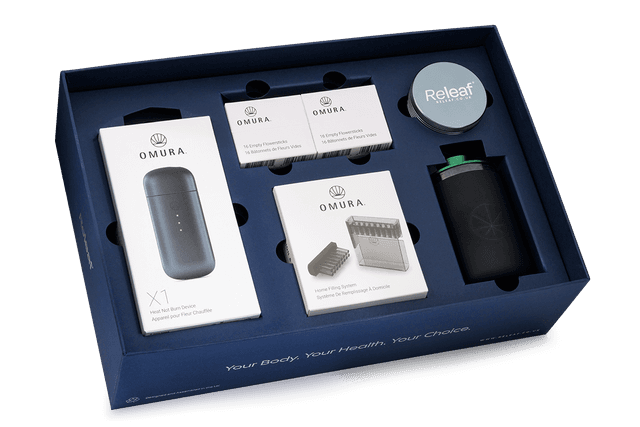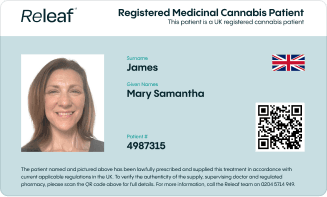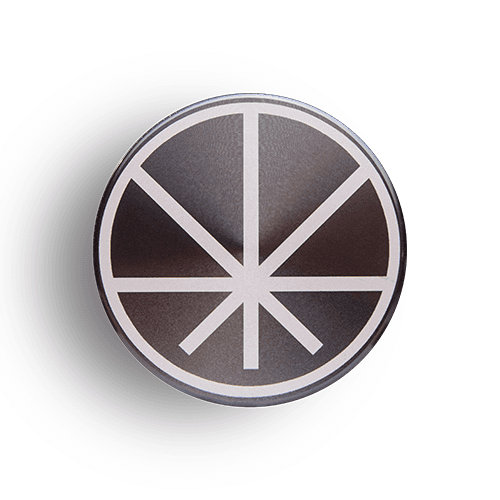Medical cannabis is a rich source of cannabinoids, or phytocannabinoids to be more precise. Our bodies also produce cannabinoids, which are referred to as endocannabinoids. These are chemical compounds that interact with the body's endocannabinoid system to produce various effects. Some studies suggest that these cannabinoids have anti-inflammatory properties that could potentially alleviate symptoms of Crohn's disease.
This article will explore the relationship between cannabis and Crohn's disease in more detail. It will examine the potential benefits and risks of using medical cannabis as a treatment for this condition.
Crohn's disease explained
Crohn's disease is a chronic inflammatory condition. It can affect any part of the gastrointestinal (GI) tract. In general, however, it impacts the small intestine and the beginning of the colon.
Typical symptoms of Crohn's disease include nausea, vomiting, and loss of appetite. This can leave the body unable to digest food effectively, leading to fatigue, weight loss and, potentially, malnutrition.
The inflammation in Crohn's disease can lead to the thickening of the intestinal wall and the formation of scar tissue. This can result in intestinal obstruction or blockage. It can also lead to complications such as ulceration and tissue damage.
Crohn's disease can also cause symptoms which influence other parts of the body. These may include joint pain, skin rash, eye inflammation and liver inflammation.
The exact cause of Crohn's disease is still being investigated. There are, however, some known risk factors that increase the chance of developing the condition. These are smoking, a family history of IBD, and a compromised immune system.
The shortcomings of current medical treatments
At present, the only medical treatment that can actually cure Crohn’s disease is surgery to remove the affected portions of the intestine. This approach is only used in the most severe cases. The mildest cases of Crohn's disease may be managed largely through lifestyle measures. These would typically include diet control and stress management.
Moderately severe cases would traditionally be treated with anti-inflammatory medications such as corticosteroids and immunosuppressants. Today, however, increasing numbers of people are looking at medical cannabis as a complement to these treatment options.
The endocannabinoid system
The endocannabinoid system (ECS) consists of a network of endogenous cannabinoids, receptors, and enzymes responsible for the synthesis and degradation of these cannabinoids. It plays a key role in regulating various physiological processes. These include appetite, inflammation, and response to pain.
Medical cannabis works by interacting with the endocannabinoid system in the body. THC and CBD can bind to the cannabinoid receptors found in the ECS. These are known as CB1 and CB2 receptors, respectively. By activating these receptors, cannabis can alter the release of various neurotransmitters and regulate the immune system's response.
Cannabis contains over 100 cannabinoids, including the well-known delta-9-tetrahydrocannabinol (THC) and cannabidiol (CBD). THC is known to produce the psychoactive effects associated with cannabis use. CBD, by contrast, is totally non-intoxicating. Both THC and CBD have been shown to have medical benefits.
How can medicinal cannabis help with Crohn's disease?
Numerous research studies have explored the potential advantages of using cannabis to alleviate Crohn's disease symptoms. One such study discovered that cannabis could decrease inflammation in the gut by lowering the levels of pro-inflammatory cytokines. These are believed to contribute to the development of Crohn's disease symptoms.
Another research study found that patients who administered medicinal cannabis experienced an improvement in their quality of life, decreased pain and an increase in appetite in comparison to those who did not use cannabis.
In addition to reducing inflammation and pain, medical cannabis may also have the potential to modulate the immune system, which is believed to play a significant role in Crohn's disease. For example, one study found that cannabis reduced the levels of T-helper cells. These are immune cells involved in the inflammation associated with Crohn's disease.
Despite the potential benefits of using medical cannabis for Crohn's disease, there are also potential risks and side effects to consider. These may include dizziness, fatigue and impaired cognition. Smoking cannabis may lead to respiratory issues. Additionally, patients taking high doses and/or THC-rich strains may experience adverse mental/emotional reactions, such as paranoia or anxiety.
Individuals who are considering using medical cannabis as a treatment option for Crohn's disease should first consult their doctor for expert advice on dosage, administration, and possible adverse effects. Here in the UK, medicinal cannabis can only be prescribed by specialist doctors that have been registered to do so.
Methods of administering cannabis for Crohn's disease
The most common methods of delivering cannabis for Crohn's disease are vaporising either dried flower or cannabis oil, sublingually administering tinctures (under the tongue), and eating edibles.
Tinctures are liquids infused with cannabis extracts. They can be dropped below the tongue or added to food or drinks. Tinctures are convenient and can be dosed with a high level of accuracy. They may not, however, taste particularly appealing.
Edibles refer to food products that are infused with cannabis extracts. Dosing edibles can be challenging as the effects will vary depending on an individual's metabolism. It may therefore require some trial and error to determine the appropriate dose. That said, once an effective dose has been established, edibles can be a very convenient method of using medical cannabis.
Regardless of what method(s) you and your prescribing doctor decide on, it’s vital to pay close attention to dosage. Factors that influence dosage include age, weight, biological sex and individual tolerance to cannabis. With cannabis edibles, a person’s metabolic speed is also a consideration. The safest approach is to start with the lowest possible dose. This can be gradually increased if necessary.
If you are already taking medication for Crohn’s disease, it’s essential that you consult a doctor before using medical cannabis. There may be the potential for harmful interactions between these different treatments. Similarly, if a doctor recommends a new pharmaceutical medication when you are taking medical cannabis, make sure you inform them of your current treatment plan.
Legal and social considerations
In the UK, cannabis has been legal for limited medical use since November 2018. Getting access to these medicines can, however, be difficult. Firstly, it can only be prescribed by specialist doctors. Secondly, it can only be prescribed to patients with certain conditions, including Crohn's disease. Thirdly, medical cannabis is often not covered by the NHS.
Moreover, despite the legalisation of medical cannabis in the UK, some people still attach a certain level of stigma to its use. This is largely due to the conflation of medical cannabis with recreational cannabis and, by extension, with other forms of illegal drugs. This stigma can make it difficult for patients to discuss the application of cannabis with their healthcare providers, and may deter some from trying it at all.
Cannabis and Crohn’s disease in brief
Until a cure is found for Crohn’s disease, patients will have to concentrate on managing its symptoms. For some patients, medical cannabis may provide a feasible complementary treatment option.
To get the best results from medical cannabis, however, you will need to choose the right strain and take the correct dose of it in the right way. What’s more, you may need to change the way you administer medical cannabis as your condition and/or lifestyle changes.
That’s exactly why we offer a personalised service that helps you find the right medical cannabis treatment for you, whatever your circumstances.
At Releaf, we believe that access to medical cannabis is important. That's why we offer tailored monthly packages based on your cannabis prescription, specialist consultations for medical cannabis, and a unique medical cannabis card for protection.





